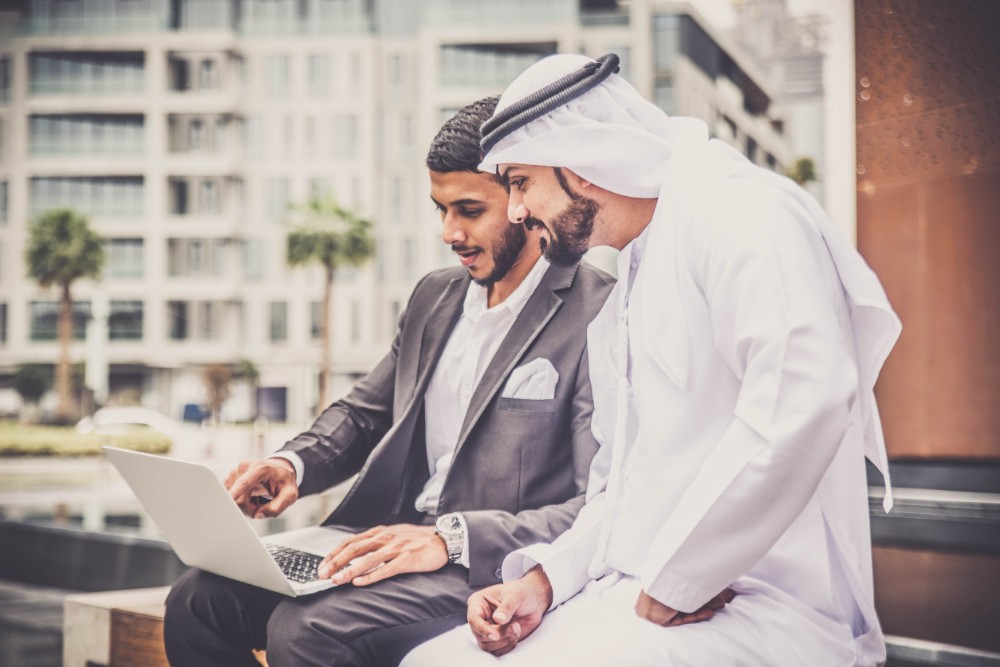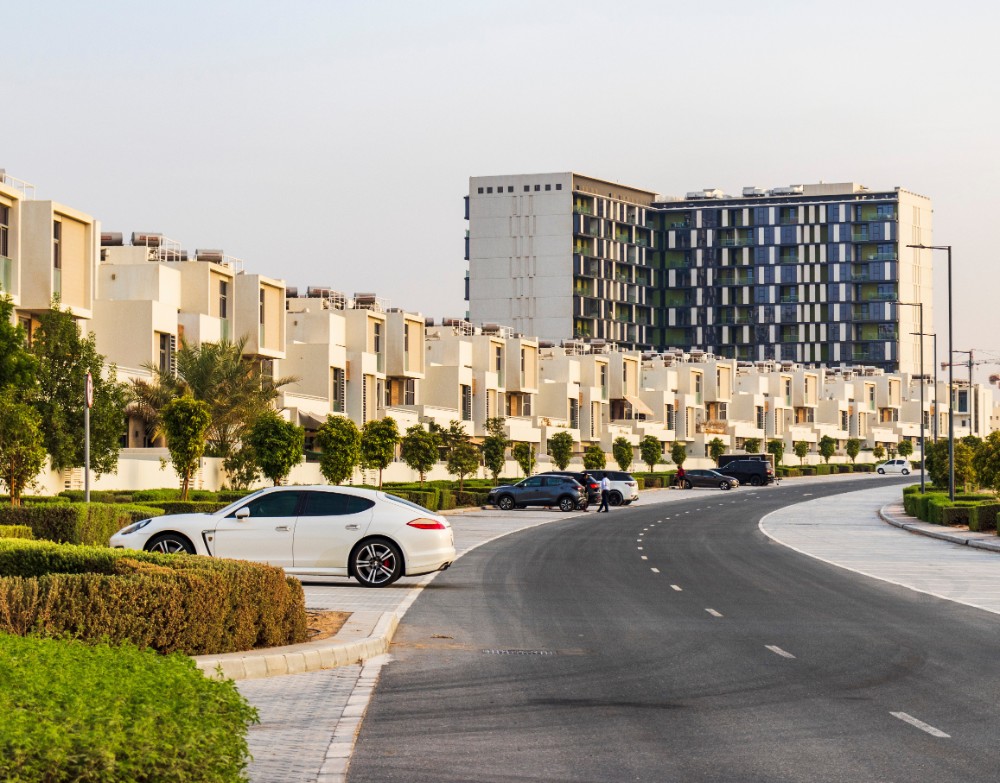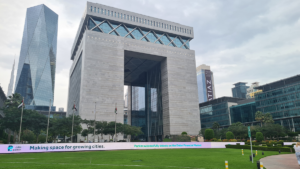First, the good news. The UAE has been bucking volatile international trends with both economic performance and outlook. The UAE’s GDP is expected to top 6% growth in 2022, up from 3.8% in 2021, according to the International Monetary Fund (IMF). In Abu Dhabi alone, the first half of 2022 saw GDP grow by over 11%.
The number of new business licences issued in Dubai reached nearly 25,000 in the first quarter of this year, up almost 60% on 2021, helped by what Dubai’s Department of Economy and Tourism referred to as the “robust fundamentals, resilience and sustainability of Dubai’s economy”. Along with wide-reaching reforms to visa rules and improvements to the startup ecosystem, things are set to become even easier and more profitable for entrepreneurs and new businesses in the region.
But what else has changed in 2022, and how might it affect the outlook for the years ahead? From rising real estate to nose-diving crypto, from visa and legislative changes to VC investment, this article takes a closer look at some of the most significant details.
Startup ecosystem
Dubai has fostered a robust entrepreneurship ecosystem for many years, and it’s impossible to mention all the endeavours the UAE authorities have made to make Dubai and the UAE an attractive place to set up a new business. Expat entrepreneurs enjoy 100% ownership in the country’s 45 free zones, and the UAE’s open business environment has created a healthy startup ecosystem in which its 350,000 SMEs make up around 40% of Dubai’s GDP and employ over 40% of the workforce. In addition, the government has put tremendous effort into stimulating SMEs – development funds and agencies such as Dubai SME, Dubai Future Accelerators and the Khalifa Fund for Enterprise Developers continue to support SMEs across all development phases.
This year, Dubai’s Crown Prince Sheik Hamdan launched a USD$100-million venture-capital fund for startups to increase the number of SMEs, boost their future success and encourage growth and expansion into international markets. This initiative goes hand in hand with the Ministry of Economy’s Entrepreneurial Nation scheme, which aims to transform 20 startups into unicorns – privately owned companies with a valuation of over USD$1 billion – by 2031.
These initiatives come hot on the heels of Sheik Hamdan’s Dubai Next, a digital crowdfunding platform for innovative startups that supports young innovators from around the world with access to project funding. This is in addition to the already well-established support offered to overseas and local startups from startup hubs and tech ecosystems such as Dubai Startup Hub and Abu Dhabi’s Hub71, as well as agencies such as Dubai Future Accelerator and other tech hubs, campuses and accelerators like Fintech Hive (Dubai), Flat6Labs (Abu Dhabi) and Sheraa (Sharjah).
This year also saw the official opening of a new UN programme for Arab SMEs – the Economic and Social Commission for Western Asia (ESCWA). Its e-commerce Acceleration Programme (eCAP) is designed to help up to 100 SMEs from eligible Arab countries, including all GCC states, to build and optimise online platforms as part of a transition to online selling.
Company formation/ business setup
As mentioned above, the number of new businesses taking advantage of preferential company formation in the UAE jumped by over 60% on last year’s figures for Q1.
Following various changes to company ownership rules – 100% foreign ownership is now permitted in mainland companies as well as free-zone organisations – corporate taxation rules came into force early this year for financial years beginning June 1 next year. The tax will be levied at 9% on profits over AED 375,000, but where free zones have provided 50-year tax-free guarantees to free-zone-incorporated companies, they can continue to enjoy those guarantees so long as they don’t conduct business in mainland UAE.
In addition to changes to visa rules discussed below, the UAE has recently introduced a new five-year Green Residence visa to attract and retain skilled workers. Investors and entrepreneurs can now enjoy the benefits of residency without the need for a local sponsor, and will also be able to sponsor residency for family members, giving UAE workers and their families a more stable environment in which to plan for the future.
Alongside the numerous schemes designed to help startups and SMEs discussed above, the UAE and Dubai continue to prove attractive for foreign direct investment (FDI). According to the government’s own Dubai FDI Monitor, foreign investment in the first half of 2022 grew by nearly 15% over the same period last year, making Dubai the world’s premier FDI hub.
Venture Capital landscape
Dubai’s 60% increase in new business license’s shows strengthening investor confidence in the UAE and a growing appetite among founders for its healthy startup ecosystem.
Among the big investment numbers this year, fintech Zenda raised almost USD$10 million in seed funding, and digital beauty platform Millennial Brands raised USD$35 million in growth funding. The region’s first unicorn, Careem, is moving from ride-hailing to financial services and has secured regulatory approval for its Careem Pay digital wallet. This offers various financial services, including peer-to-peer cash transfers using a mobile phone number, as well as bill payments.

Cypher Capital, a private VC firm with deep ties to the UAE and MENA region, announced a USD$100-million seed fund dedicated to blockchain and crypto investment, while Altibbi, the region’s largest AI-based digital-health platform, secured series-B funding of USD$44 million.
Although total VC funding was slightly down on 2021 levels across the MENA region, the UAE was the leading destination for VC funding this year. The first three quarters of 2022 alone accounted for US$845 million in UAE VC investment, with fintech taking almost 30% of the total deals.
Visa changes
In what is undoubtedly the biggest shake-up and relaxation of the visa system in recent years, new regulations came into force in April, giving foreign expats greater flexibility and a more tangible stake in the local economy. The changes include a relaxation of the need for a sponsor in certain circumstances and a permanent extension for visitor visas from 30 to 60 days. In an attempt to incentivise the children of expats to remain in the UAE after their formal education is complete, the new rules extend the period parents can sponsor male children, with the age limit rising from 18 to 25.
In addition, the “Golden Visa” scheme, introduced to support talented workers and individuals to help them pursue business success in the UAE, has been broadened to cover skilled professionals earning more than USD$8,000 per month. Previous rules governing the maximum duration permissible outside the UAE have also been removed, and the long-term Golden Visa means that foreign nationals can now live, work and study in Abu Dhabi without the requirement for a national sponsor, whilst retaining 100% business ownership on the UAE’s mainland.
Among other changes, the UAE authorities have also introduced a new multi-entry five-year tourist visa, as well as the Green Residence visa scheme discussed above.
Real estate
In the first half of 2022 alone, real estate transactions in Dubai hit USD$43 billion. Figures from the Dubai Land Department (DLD) show that in the first six months of this year, there were 60% more property transactions than in the same period in 2021, with an overall increase in value of around 80% compared to 2021.
While total real estate transactions in Dubai reached AED18.3 billion in May alone, would-be property investors who might previously have had trouble accessing the necessary capital to fund property investments are beginning to side-step that problem with crowdfunding options. This fund-raising method is becoming increasingly popular among property investors because they can appeal to a much broader group of investors via online platforms, and participants in investment projects invest – and risk – much smaller amounts across a broader and less risky portfolio.

As an example of what’s possible, crowdfunding platform SmartCrowd, licensed and regulated by the Dubai Financial Services Authority (DFSA), gives users the chance to pool investments in rental property and the chance of investment returns or capital growth. SmartCrowd reduces overall risk by spreading wealth across a portfolio of real estate assets, allowing lower capital expenditure by offering the chance to own just a portion of an individual property. In fact, investors can get involved in the real estate market via SmartCrowd for an initial investment of just AED 500.
Administrative, social and legislative changes in 2022
The past year has seen other changes come into effect, and although they’re not technically part of the startup scene, they’ll arguably have some indirect influence on the ease of doing business and the future pipeline of entrepreneurs and investors.
First of all, coming into effect at the beginning of 2022, the UAE’s official weekend was changed from Friday and Saturday to Saturday and Sunday, although it coincided with the establishment of a half-day from midday on Fridays. Consequently, the weekend now runs from Friday lunchtime to Monday morning. This has aligned the country with the common working week pattern in most parts of the rest of the world, although many other Gulf States have retained the Friday-Saturday setup. Although it only officially applies to government enterprises and schools, much of the private sector has adopted the changes.
Perhaps more significant is the new Federal Crime and Punishment laws that came into force in January 2022. This involved wide-ranging reforms to amend the law’s position on several social issues, and one of its aims is to reflect the fact that the expat community makes up around 90% of the UAE’s population. By aligning its stance on certain social issues with the prevailing norms in many western jurisdictions, the country’s position as a major international commercial hub is likely to be strengthened. Although not entirely comprehensive, some of the reforms involve added protection for women – for example, rape now carries a life sentence, with the death penalty for certain aggravated conditions. The legal definition of the age of a minor has been raised from 14 to 18 years, and so-called honour killings are now classed as premeditated murder. In addition, consensual relationships outside of marriage have now been decriminalised, and extra-marital consensual sex is no longer automatically punishable with a six-month imprisonment.
Crypto
We’ve left the biggest story until last, as we felt the fall-out from the year’s FTX-related events needed more in-depth examination. Its effects are shocking, far-reaching and demoralising, calling into question the very existence of unregulated virtual assets. In short, this crypto saga is a huge story with potentially unlimited ramifications.
To begin with, it’s fair to say that we’ve experienced a bumpy few years in the virtual-asset space, with a tumultuous couple of months for the reputation of crypto and, more importantly, for investors’ money. The BTC-E crypto exchange was shut down in the US in 2017 after allegations of money laundering, and the money invested vanished. In 2019, Canadian crypto exchange Quadriga went bust, with the investigating authorities concluding that it was nothing more than a Ponzi scheme. And, of course, there was the high-profile and dramatic collapse this year of Bahamas-based crypto exchange FTX, in what The Economist called “a catastrophic blow to an industry with a history of failure and scandals”. I’ll come to FTX in more detail later; but first, let’s look at what Dubai has done to prepare itself for an anticipated world of virtual assets.
As crypto’s damaged reputation shows, Dubai authorities understood a while ago that establishing some form of government body to provide crypto oversight and governance was essential to regulate an industry with a dubious reputation and lend it some legitimacy. It also aims to promote and establish a local crypto industry that could attract the best of the best from around the world. Dubai’s answer is the new Dubai Virtual Asset Regulatory Authority (VARA), a regulatory body that will oversee all cryptocurrencies in the UAE and will be responsible for the licensing, regulation and governance of all virtual assets, as well as investor protection. So far, so good – let’s remember, being well prepared for a renaissance in crypto, should that ever come, will give Dubai an edge over other jurisdictions.
So, let’s bite the bullet and take a closer look at this year’s biggest news in crypto: FTX. Bloomberg called its collapse “one of history’s greatest-ever destructions of wealth”. What its implosion has focused minds on – and what the plummet from grace of its founder, Sam Bankman-Fried, has underlined – is that the much-hyped utopian crypto dream of a new world order and more transparent financial system, one that made no secret of side-lining greedy bankers, was little more than a smokescreen for rogue billionaires to gamble investors’ cash with little or no risk exposure to themselves. As commentator Will Gottsegen noted, “part of the blockchain’s raison d’être lay in cutting out greedy bankers and creating greater trust between transacting parties. Now, in 2022, the crypto markets are controlled by an industry that’s proved time and time again just how similar to the existing financial system it really is”. Bankman-Fried is currently under investigation by the Securities and Exchange Commission and the US Department of Justice and is believed to be holed up in the Bahamas.

As if to underline the extent of Bankman-Fried’s unorthodox and potentially criminal operations, even left-leaning news-site Vox – poised to receive a grant from his philanthropic arm – noted that “[Bankman-Fried’s] business operations have been revealed to be a disaster, and Bankman-Fried as a deeply unserious person and potential fraudster”. The ripple effects of the collapse are far-reaching, and Bankman-Fried’s self-publicised and now infamous philanthropic gestures, embodied by the movement known as “effective altruism”, now lie in tatters with multiple casualties in their wake. And the irony that a San Francisco-Bay Area fad that purports to address poverty actively encouraged its devotees to amass as much wealth as humanly possible has been lost on absolutely nobody.
It’s perhaps no surprise, then, that effective altruism has suffered a potentially terminal blow after the collapse of the giant, multi-billion-dollar Ponzi scheme run from Bankman-Fried’s USD$40-million penthouse apartment in the Bahamas. But cultural subtleties aside, FTX’s customers are more concerned with the fact that they’re about USD$8 billion short, as are its one million creditors and investors, who have pumped in some USD$1.8 billion over the last few years. Some have lost tens or, in some cases, hundreds of millions of dollars on the paper value of FTX’s January valuation of USD$32 billion.
Evidence of real harm to people who FTX’s philanthropy purported to be helping is now beginning to emerge. Furthermore, the affair has underlined the grotesque cynicism of Bankman-Fried’s alleged philanthropy and the murky unregulated world of crypto. In short, it has called into question the ethics and moral compass of the crypto wild west, as well as fads such as effective altruism. In the spring of 2022, FTX chose Chicago for its US headquarters. On the face of it, the choice of Chicago made sense, as they wanted to use the city to pilot a cash programme under the guise of a guaranteed basic income targeted at poor African Americans in the city, in partnership with the city authorities and other non-profits. The same programme, masquerading as a charitable endeavour, also ran in Florida, and both helped to expand the market of the FTX app.
However, as former independent candidate for California Governor Michael Shellenberger recently reported, it has emerged that this was nothing more than a cynical PR and lobbying confidence trick, with the sole aim of securing Democrats’ support for FTX’s long-held desire to resist federal regulation and instead regulate itself. This was the great deception: Bankman-Fried positioned himself as the “pro-regulation prophet”, the adult in a room “notorious for its gamblers and grifters”. But as a journalist who has had recent contact with Bankman-Fried since the collapse of FTX reports, “his overtures to Washington [on crypto regulation] were much more about image than substance”. Indeed, the same journalist has published their exchanges, in which Bankman-Fried himself wrote, “yeah, just PR. F**k regulators, they make everything worse, they don’t protect customers at all.” Either way, it appears FTX targeted poor black neighbourhoods to remain unregulated and untouchable. As Michael Shellenberger notes, “the episode is a cautionary tale about how powerful financial interests use progressive social justice ideology to advance their business interests at the expense of the communities they claim to be helping”. That’s some understatement.
Confidence in a new financial landscape under the guise of a crypto utopia has been shaken to its core. Whether crypto can ever recover from this year’s events, only time will tell. After all, predictions of its demise aren’t exactly new. But if you’re not deeply sceptical about its security, ethics or shelf-life, you haven’t been paying attention. As news site Vox notes, “crypto may be the cat with nine lives: it’s just not clear which life it’s on right now”. But other commentators are probably far closer to the truth – as one noted recently, “[Bankman-Fried’s] antics have turned back the clock, and what looked like a winter is starting to feel more like an ice age”.
Oil to the rescue
With many western economies facing uncertain and turbulent futures, Dubai’s startup ecosystem is looking healthier and more attractive for foreign founders and investors by the day. Hydrocarbon-exporting MENA economies are thriving thanks to the high price of oil and gas, with GCC countries expecting more than 6.5% growth in GDP in 2022. Higher commodity prices have protected the region from a faltering global economy and have offered protection against the worst effects of high inflation, recession and a global energy crisis.
The result? All GCC states, including the UAE, have a very positive outlook for 2023.


